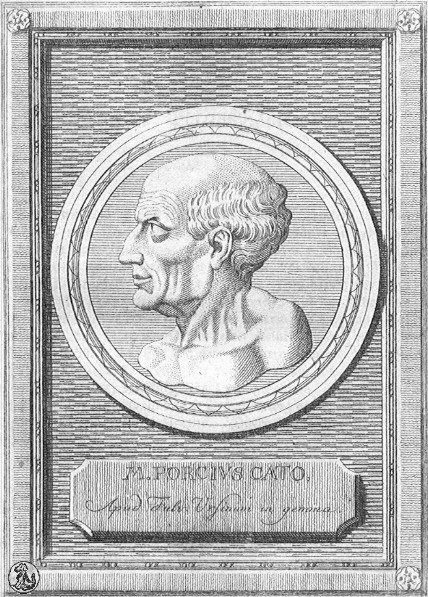
I've made it now to the life of Cato the Elder. A couple of quotes took me a bit by surprise.
However, for my part, I regard his treatment of his slaves like beasts of burden, using them to the uttermost, and then, when they were old, driving them off and selling them, as the mark of a very mean nature, which recognizes no tie between man and man but that of necessity.This is a proper attitude, one which I might expect to find in any Christian. Such expectations, however, would be perpetually disappointed. It was insufficiently widespread in the slaveholding ancient world, insufficiently widespread in the revived slaveholding after the "Renaissance", and is insufficiently widespread in today's corporate world, where employees are all too often treated exactly as "beasts of burden".
We should not treat living creatures like shoes or pots and pans, casting them aside when they are bruised and worn out with service, but, if for no other reason, for the sake of practice in kindness to our fellow men, we should accustom ourselves to mildness and gentleness in our dealings with other creatures.This sums up in a nutshell why Michael Vick's dogfighting was so wrong: how we treat animals is practice for either kindness or cruelty to our fellow men.
No comments:
Post a Comment